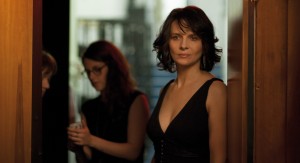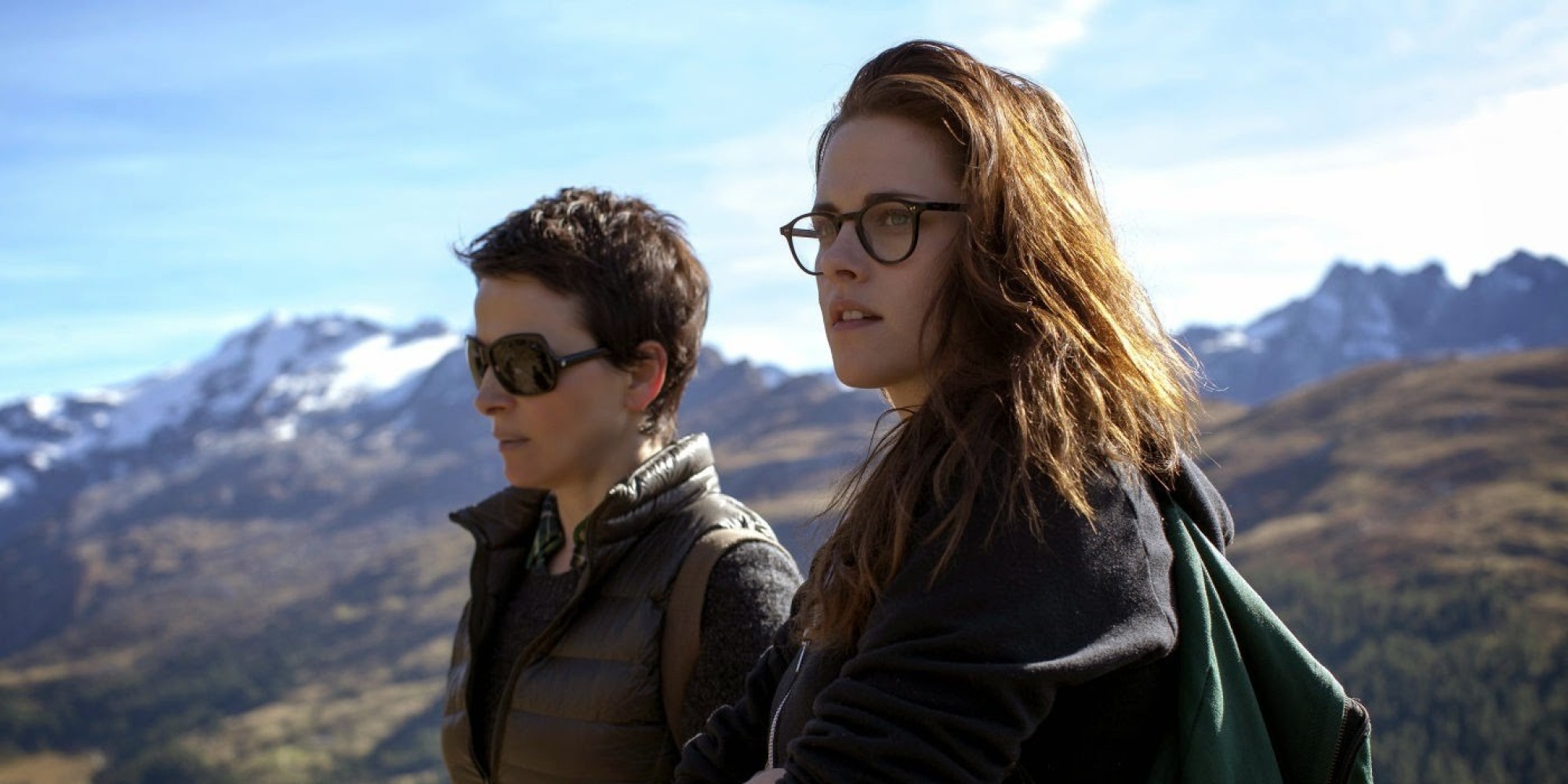 “I’ve always identified with that freedom,” muses Maria Enders (Juliette Binoche) of that role that brought her to fame, many years ago. “It’s a way of protecting myself,” she adds, a note of sadness cracking her confident veneer. Clouds of Sils Maria is a film that is driven by this kind of contradictory duality, and like its more cerebral predecessors Persona and Mulholland Drive, it realises them through female relationships, here employing a savage critique of cinema’s ageism and throwing a young American star – Kristen Stewart – against one of world cinema’s living legend.
“I’ve always identified with that freedom,” muses Maria Enders (Juliette Binoche) of that role that brought her to fame, many years ago. “It’s a way of protecting myself,” she adds, a note of sadness cracking her confident veneer. Clouds of Sils Maria is a film that is driven by this kind of contradictory duality, and like its more cerebral predecessors Persona and Mulholland Drive, it realises them through female relationships, here employing a savage critique of cinema’s ageism and throwing a young American star – Kristen Stewart – against one of world cinema’s living legend.
Maria’s actual fight is against fictional American starlet Jo-Ann Ellis (a typically precocious Chloë Grace Moretz), who has been cast in Maria’s star-making part in a restaging of the play, while Maria has to be enticed into playing the older part of a woman driven to tragic ends by the younger woman. Yet writer-director Olivier Assayas places the bulk of the situation’s emotional volatility into the relationship between Maria and her personal assistant Valentine (Kristen Stewart), an inevitably close and charged relationship precisely because Maria places a lot of her own emotional burdens onto her employee. Lines blur wherever lines exist, and quite how the two women really regard each other is impossible to pin down.
 It’s a relationship as elusive as the titular clouds of the title, yet both Binoche and Stewart are expert at keeping every action and reaction both realistic and intriguing, furthering our interest in their complex duet even as they feed into its building mystery. Even though Valentine isn’t an actress, Assayas and Stewart use the scenes where she and Maria run through Maria’s lines to amplify the contrast in old and new acting styles: Maria is overwrought and gesticular where Valentine is calm and reactive. It’s old versus new, but also film versus stage, glamour versus celebrity.
It’s a relationship as elusive as the titular clouds of the title, yet both Binoche and Stewart are expert at keeping every action and reaction both realistic and intriguing, furthering our interest in their complex duet even as they feed into its building mystery. Even though Valentine isn’t an actress, Assayas and Stewart use the scenes where she and Maria run through Maria’s lines to amplify the contrast in old and new acting styles: Maria is overwrought and gesticular where Valentine is calm and reactive. It’s old versus new, but also film versus stage, glamour versus celebrity.
Despite the natural etherealness of the title, Clouds of Sils Maria doesn’t quite seem to exist in reality; the scenes in the mountains, particularly, are lit with an odd airless quality to them, as if Binoche and Stewart are acting on a soundstage in front of a beautiful painted background. Assayas switches to baroque classical music for the soundtrack here, too, emphasising both the ancient feel of their environment and the constructed nature of their interactions – their dialogue seems to free-flow between rehearsal and actual conversation – and by extent the film itself.
 Assayas loves going meta, and his films are at his best when they can maintain clarity of character through these confusions of time and space, which is achieved here through two superlative performances at the film’s heart. While the central themes occasionally strike a bitter note, and one on a subject that is hardly breaking new ground – cinema has been fascinated by the usurpation of actress since at least All About Eve. But when the light goes out, the memories on the way out of the theatre are of a film that has secrets hidden in every crevice, and of actresses that make these worth discovering.
Assayas loves going meta, and his films are at his best when they can maintain clarity of character through these confusions of time and space, which is achieved here through two superlative performances at the film’s heart. While the central themes occasionally strike a bitter note, and one on a subject that is hardly breaking new ground – cinema has been fascinated by the usurpation of actress since at least All About Eve. But when the light goes out, the memories on the way out of the theatre are of a film that has secrets hidden in every crevice, and of actresses that make these worth discovering.
Clouds of Sils Maria is available on DVD & Blu-ray now.




